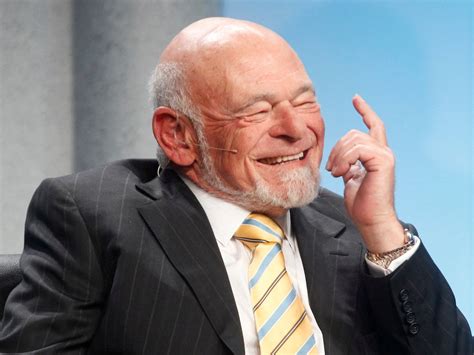A Quote by Sam Zell
The single biggest issue that I'm very sensitive to is inflation. I'm very concerned that this extended period where the interest rates were quite low and stimulated a lot of activity could breed inflation and create a problem for us.
Related Quotes
For equity markets, the combination of low interest rates, strong economic growth and low inflation has proved very beneficial, with global share markets rising solidly in each of the past three years. This has been underpinned by strong growth in profits so that, notwithstanding the rise in share prices, P/E ratios have been declining on average.

































